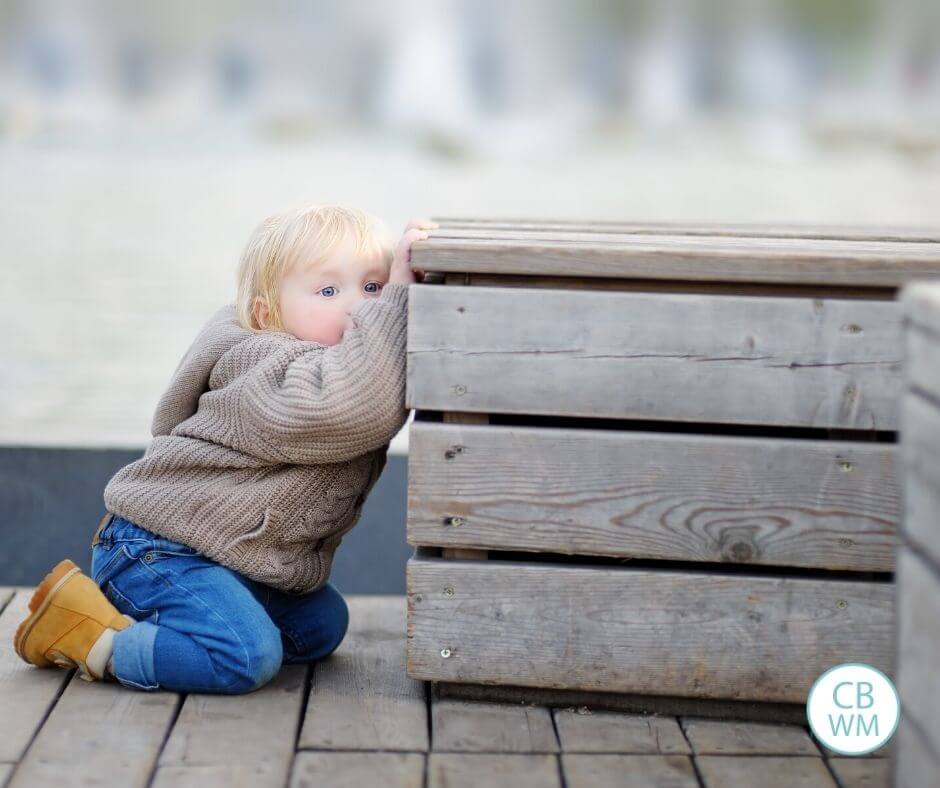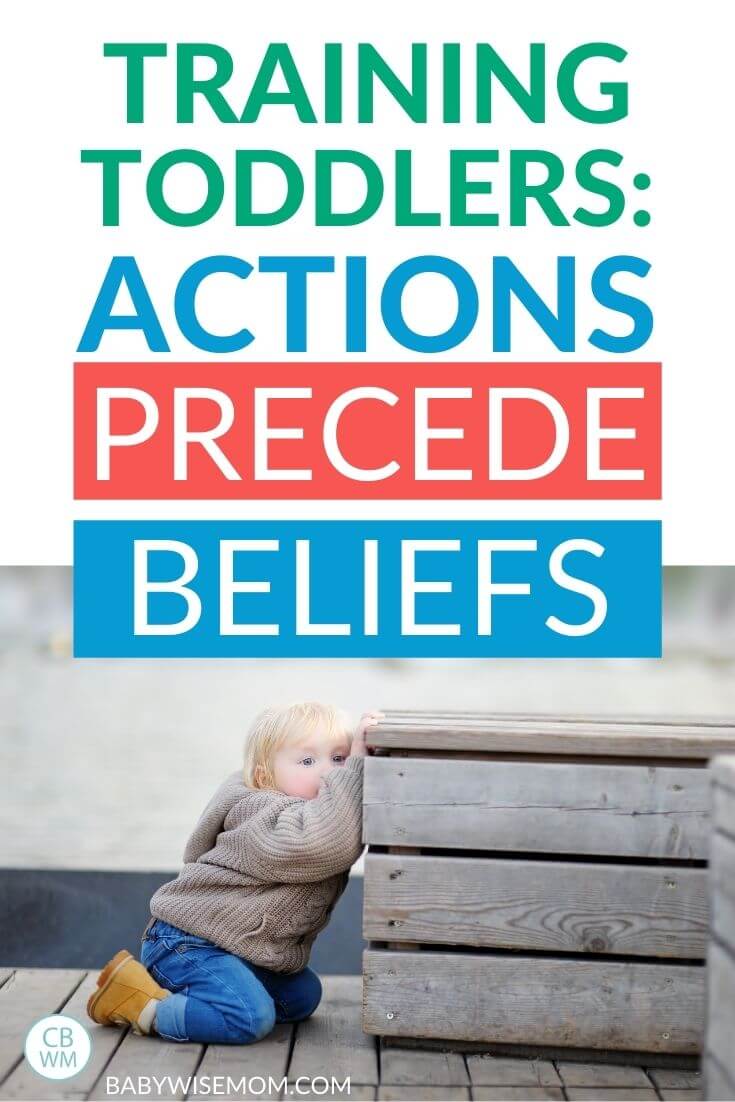Find out why you can and should correct your older baby, pretoddler, and toddler even when she can’t understand why yet.

As cute as older babies and toddlers are, they still can make choices that are not ideal.
When this happens, parents are often at a loss for how to respond. Is it even fair to tell a toddler he can’t hit if he doesn’t understand why he can’t hit?
Thoughts on Training Babies and Toddlers
When it comes to training babies, pre-toddlers, and toddlers, parents often fall in one of two camps of thought.
One camp is a bit in disarray because the parents don’t really want to push moral behavior before the child can conceptualize why the behavior is not okay.
So the child sometimes is not allowed to do something and other times is allowed to do the same thing. This leads to confusion and frustration–especially frustration from the parents because the child isn’t listening.
The other camp is a bit frustrated because they want the child doing things for the “right reasons” and wants the child to want to obey.
It is frustrating for the parent because children of young age groups cannot understand morals, so there is no behaving for the wrong or right reason–it just is or isn’t.
Both of these camps miss the mark.
“Young children do not have the moral means to create or respond to right and wrong”.
(On Becoming Babywise Book Two, page 21)
So our second camp is aiming for an unachievable goal.
But that doesn’t mean we just wait until they turn three and start to understand morals.
“This does not mean, however, that you suspend the training of right responses”.
(page 21)
Despite a Lack of Understanding, Train Now
Don’t wait until “later.”
Teach your toddler now.
He may not understand why he shouldn’t throw his food on the floor.
He isn’t capable of thinking of how others feel when he screams in close quarters with others.
He doesn’t have the empathy skills to imagine what it would feel like if his sibling hit him.
But actions precede beliefs.
Teach him to keep his food on his high chair tray. Teach him to not hit. Teach him to not scream in the house.
Teach him correct behavior.
When the age is right, he will start to understand why this behavior is right or why other behaviors are wrong (usually around age 3).
Until then, he will gain correct habits and won’t involve arduous retraining as a 3 year old.
Remember the mantra of Start As You Mean To Go On. Don’t stress about teaching the why right now. Focus on the what. The why will come when it is age-appropriate.
RELATED POSTS
- Teaching Your Baby to Listen to “No”
- Valuable Discipline Tips for Toddlers
- Teach Kids What Obedience Looks Like
- 5 Rules for Giving Kids Instructions


Would you have any suggestions on how to stop screaming & whining at a younger age (ei: 6 months old). I can see that this isn't how I want things to go, but I sincerely wonder HOW to go about it at this young an age. Thank you for your thoughts!
When my babe is whining (7 months), I usually say, 'please no whining, we do not whine in this house', and don't give in to what she wants. Again, I suppose it is keeping with the mantra- Start as you mean to go on. Screaming is hard- because at times they are just discovering their voice. Looking forward to comments about this.
When my son was just over a year old, he began to try out screaming. We try to make it clear that a little bit of yelling is fine when rough-housing with his dad, but if it is a burst of self-will and a bad attitude, we explain to him that that is not acceptable, say "Do not scream" or something like that. Then, if he does it again, we give him a light thump on the cheek right next to his mouth. And again if he persists. This works well, I think, because it is telling him very tangibly where the source of the problem is–he's not using his mouth properly. He usually "gets it" right away, and may cry because he doesn't like our ruling, but it really has helped to keep screaming to a minimum. I don't know what I'd recommend for a baby that is as young as 6 months, though…at that age it is probably more of an experimental thing than a rebellion/demonstration of displeasure thing. We didn't start to really discipline our son until it was obvious he could understand a few things and respond–at about 8 months old.My son is now 17 1/2 months old and we haven't had a real tantrum yet. I think his "tantrums" just involve whining and crying. And that is a blessing! Though I am trying to figure out how best to deal with the crying tantrums… 😛
Marysol,With a baby that age, I would put a finger to the baby's lips gently and say, "That's a no, we don't yell in the house (or at the table or whatver your rule is)." Speak softly and quietly. Repeat as needed (which will likely be often).You can also take him outside and let him yell and yell so he gets his yelling to a point that it isn't a novelty.You also want to consider why he is yelling. If he is yelling for experimentation, that is where taking him out works well. If he is yelling to get your attention, then working on teaching him sign language for needed things will address the yelling.
Thanks Vanessa and Lauren for your ideas!